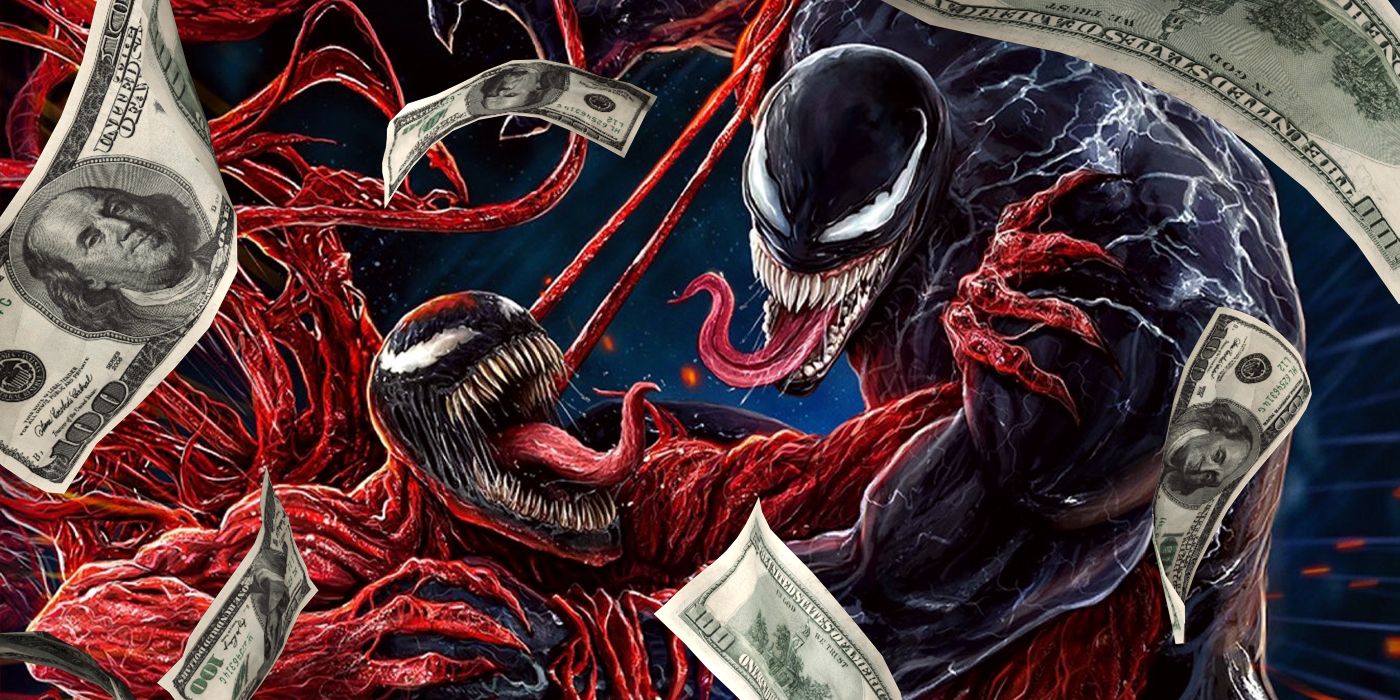Director Andy Serkis’ Venom: Let There Be Carnage defied even the most extravagant projections to make $90.1 million in its opening weekend. That’s huge enough to make it the largest haul of the pandemic and extract a salty statement from Sony chairman Tom Rothman, who said, “We are also pleased that patience and theatrical exclusivity have been rewarded with record results. With apologies to Mr. Twain: The death of movies has been greatly exaggerated.”
Remember, just a few weeks ago Venom 2 was expected to open with around $40 million. Opening day figures pushed Sony’s projections to around the $70 million-mark, but word around the industry was that the film could challenge the original Venom’s $80.2 million opening weekend haul from 2018. The $90 million opening is the second-best for October, behind Joker’s $96.2 million debut in 2019, and ahead of Black Widow’s now second-biggest pandemic haul of $80.8 million in its first three days.
Unlike that Marvel film, Venom 2, set in Sony’s Spider-Man Universe, is playing exclusively in theaters. And although it doesn’t have a China release date yet, expect it to do mammoth numbers if it does open there. The first Venom made $270 million in China, for a worldwide total of over $850 million.
At the number two spot was another over-performer, the animated sequel The Addams Family 2. Directed by Conrad Vernon and Greg Tiernan and featuring the voices of Oscar Issac and Charlize Theron, the film made $18 million in its opening weekend. Crucially, The Addams Family 2 is available to watch at home via On-Demand retailers, including Amazon, Redbox, AMC Theaters On Demand, and more. The first movie made over $200 million worldwide in 2019.
With the top two movies both exceeding expectations, it’s the surest sign yet that the domestic box office is well on its way to recovery after a year-and-a-half of underwhelming debuts and false starts. For the first time since the pandemic, the weekend box office came in at less than 15% behind the same weekend in 2019.
Marvel’s Shang-Chi and the Legend of the Ten Rings made $6 million in its fifth weekend, after spending four weekends at the top spot. It now stands at $206 million domestic, which is a pandemic-best figure, ahead of fellow Marvel title Black Widow. Like Venom 2, Shang-Chi was also released exclusively in theaters, where it has around a month more to go before arriving on Disney+ on November 12. This puts the spotlight back on the studios that decided to go for a day-and-date release model to counter the pandemic lull — ahem, Warner Bros. — because most of those titles have underperformed. Possibly the most obvious example is The Suicide Squad, which failed to recover its reported $185 million budget theatrically, despite stellar reviews and solid buzz.
And speaking of WB, the studio’s latest day-and-date offering, The Sopranos spinoff The Many Saints of Newark, bombed with $5 million in its opening weekend. Unlike Venom 2 and The Addams Family 2, The Many Saints of Newark fell short of estimates. The film’s future looks bleak as well, if you take into consideration its C+ CinemaScore and incoming competition.
Audiences also seem to have roundly rejected director Stephen Chbosky's Broadway adaptation, Dear Evan Hansen. Starring Ben Platt (to much controversy), the film added another $2.4 million in its second weekend, pushing its domestic haul to $11.7 million. Dear Evan Hansen is playing exclusively in theaters, but seems to have primarily attracted fans of the stage musical.
Next weekend will be an interesting one to observe, with the long-delayed James Bond adventure No Time to Die finally arriving in cinemas. Directed by Cary Joji Fukunaga, star Daniel Craig's final film as the iconic British spy arrives with over $100 million in the bank already from international territories, which itself is a pandemic record.


